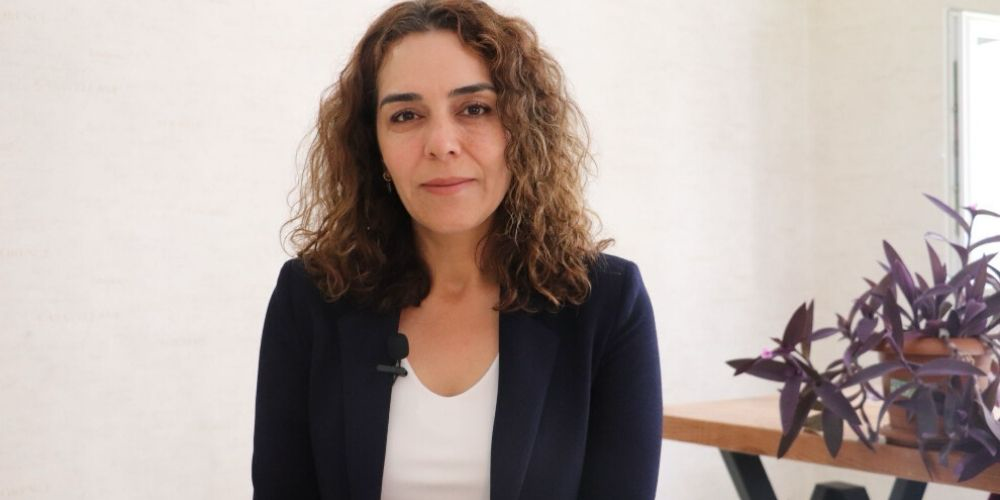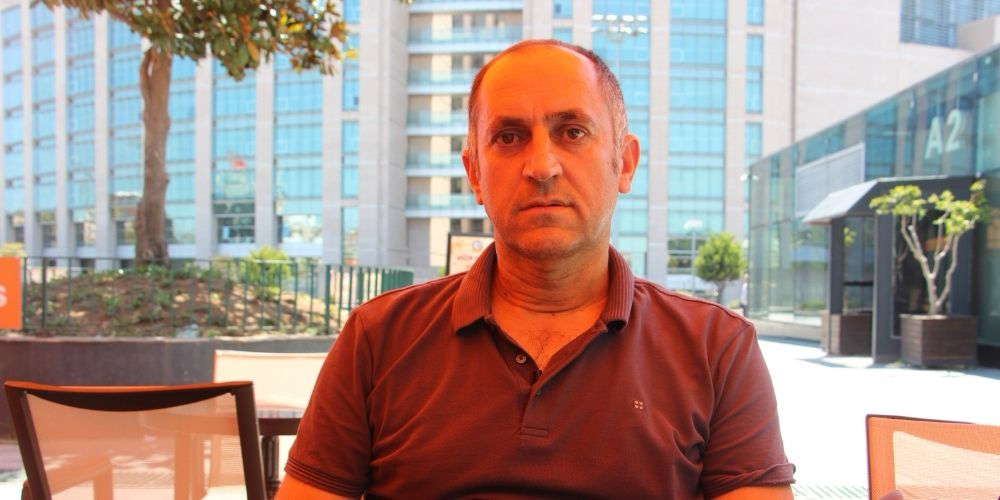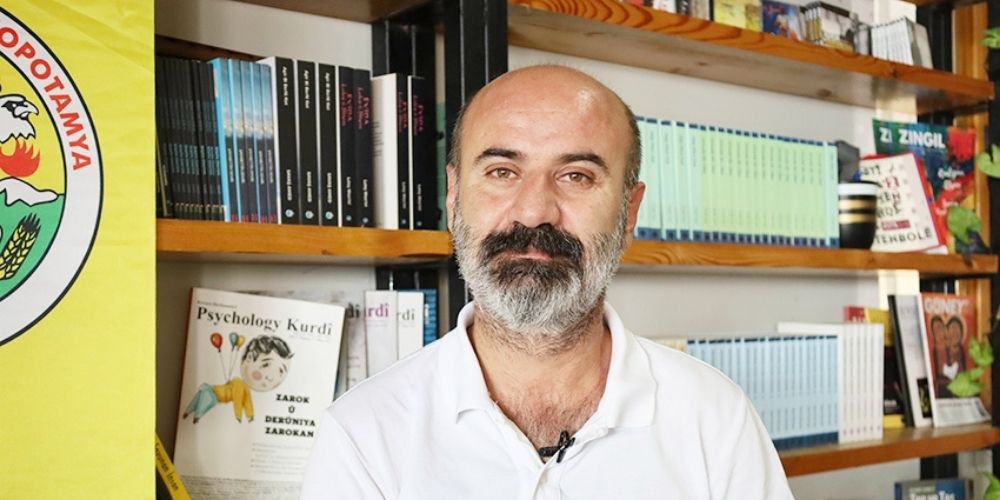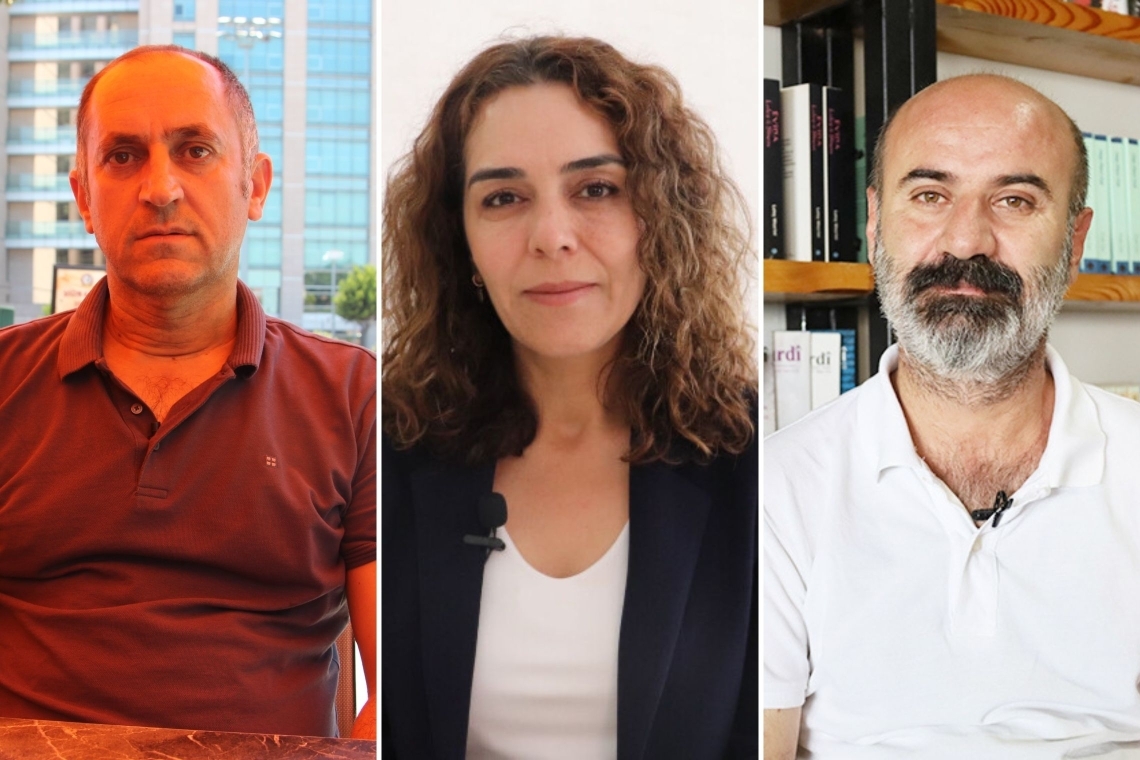Arrests and erasure of Kurdish signs spark criticism from legal experts, artists, and politicians
VAN, Turkey — The recent arrests of nearly fifty individuals for dancing to Kurdish songs and the removal of Kurdish traffic signs in Van have prompted strong reactions from legal experts, artists, and politicians, who claim the actions are politically motivated rather than legal.
The arrests occurred after certain social media accounts targeted people dancing to Kurdish songs, leading to detentions in multiple cities, including Mersin, Ağrı, Istanbul, Siirt, Batman, and Hakkari. Those detained, around 50 individuals, were accused of "making terrorist propaganda." Among the arrested were soldiers participating in conscription celebrations and wedding performers.
In Van, on July 26, Kurdish traffic signs reading "Pêşî Peya (Pedestrian First)" were defaced and replaced with "Turkey is Turkish, and it will remain Turkish." Following this incident, similar signs in Diyarbakır, Batman, and Mardin were removed by teams from the General Directorate of Highways (KGM) under police supervision, as per the decisions of local governorates.
The arrests and the removal of Kurdish signs have drawn widespread criticism. Ferat Boğatekin, a member of the Association of Lawyers for Freedom (ÖHD), Engin Cengiz from the Mesopotamia Cultural Center (MKM), and Adalet Kaya, a Member of Parliament from DEM Party representing Diyarbakır, spoke to the Media and Law Studies Association (MLSA) regarding these issues.

Adalet Kaya: "We have been living under a dual state regime for 8 years"
Kaya criticized the government's actions, stating, "I won't say fascism has returned; it never truly ended. Over the last eight years, it has been gradually rebuilt by the AKP/MHP alliance. Unlike the 1990s, the principle of the rule of law, already weak, has been completely dismantled. Post-2016 coup attempt, the separation of powers was erased, accelerating the construction of a new regime. We now live under a dual state regime, where arbitrary and politically motivated decisions oppress all opposition, Kurds, Alevis, and others."

Ferat Boğatekin: "Weddings do not constitute a crime"
Boğatekin highlighted the absurdity of criminalizing traditional celebrations. "Recently, social media posts have targeted Kurdish wedding songs, leading to detentions under the pretext of 'terrorist propaganda.' These are traditional, non-political events. The idea that weddings are organized by terrorist groups is baseless."

Engin Cengiz: "The goal is prohibition and intimidation"
Cengiz emphasized that the crackdown on Kurdish cultural expressions is a systematic effort to suppress Kurdish identity. "The system returns to its essence: anti-Kurdish sentiment. Any event that could boost Kurdish morale is targeted. The state's approach reflects a century-long policy of Kurdish suppression."
Broader Implications and Legal Concerns
Boğatekin pointed out that such prohibitions have no legal basis, emphasizing that actions not explicitly defined as crimes by law cannot be penalized, per the principle of legality. "Claims that Kurdish wedding songs equate to terrorist propaganda are unfounded. This effort to criminalize Kurdish culture is a continuation of past prohibitions."
Kaya added that the ongoing actions represent a dictatorship being built over the past eight years, where the legislative and judicial functions are reduced to executing the AKP/MHP party program. She condemned the arrests and sign removals as part of a broader strategy to silence Kurdish voices.
Despite the increased crackdown, Kaya vowed that the DEM Party would continue to fight against these oppressive measures. "We will not allow the implementation of fascist methods. We will continue to protect and promote the cultural values, languages, and lifestyles of all peoples living in this region."
Legal and Cultural Repression
Boğatekin noted that restrictions on Kurdish cultural expressions, such as music and theater, have a long history in Turkey. He warned that current actions, if continued, could lead to the erosion of Kurdish cultural heritage.
In conclusion, the targeted arrests and the erasure of Kurdish traffic signs illustrate the ongoing tension between the Turkish state and its Kurdish population. Legal experts, artists, and politicians continue to advocate for the protection of Kurdish cultural rights amidst increasing political repression.



